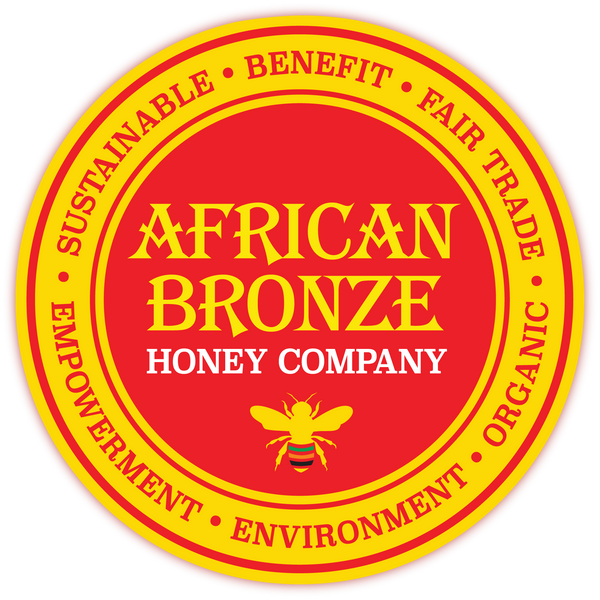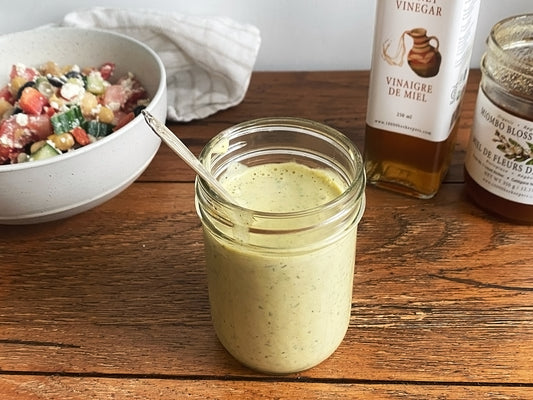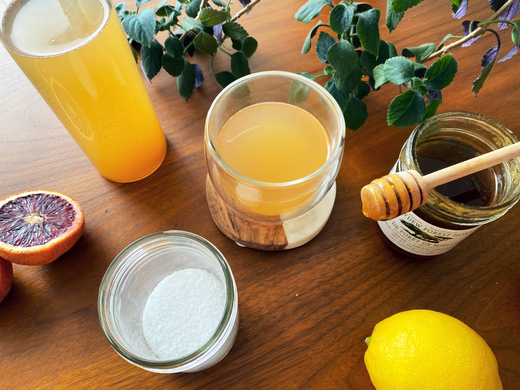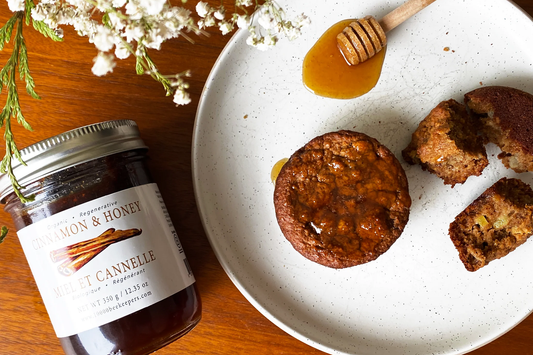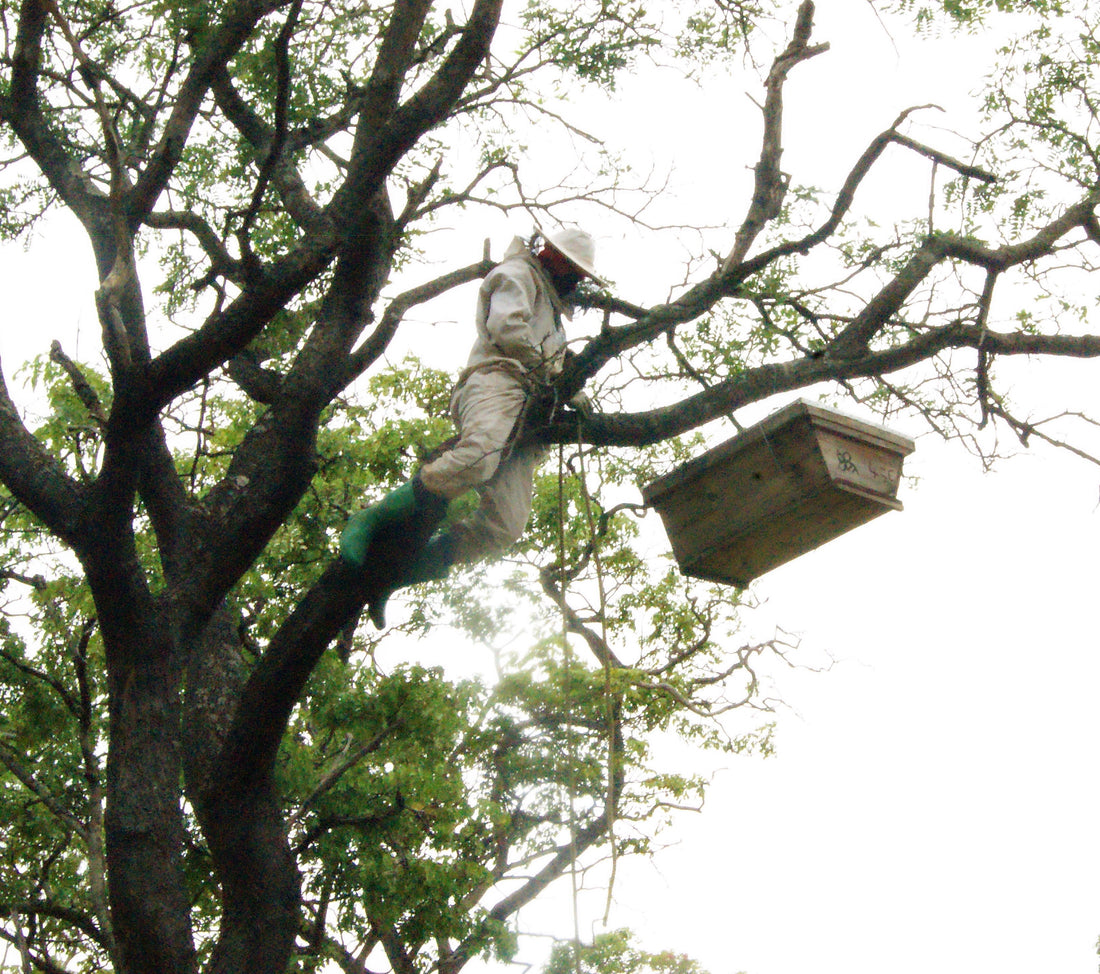
Can Honey Be Called Organic in Canada?
Share
Can Honey Be Called Organic in Canada? In short, yes - honey can be certified as an organic product in Canada. Learn more about organic honey in Canada, below.
If you’ve been around our blog, you might notice how much we love honey! It’s something we’re pretty passionate about. As nature’s homemade sweetener, honey is produced globally by honey bees using nectar from a variety of different plants. As purveyors of wild forest honey, our African Bronze Honey is sourced sustainably from communities in the sub-Saharan region of Africa.
As a certified B corp, our honey production provides jobs and opportunities for thousands of beekeeping partners, beekeepers and their families. So we know our honey is delicious and ethically produced, but can it be called organic? Let’s investigate.
What Is Organic?
Our honey is different from the traditional honey you find in grocery stores due to its raw, unpasteurized form. Our honey is harvested just as it has been for thousands of years - by local beekeepers. By contrast, agriculturally created honey is commercially manufactured and can include the use of dyes, sweeteners and mass production methods. To be classified as organic in Canada, honey cannot include added ingredients such as manufactured sugar or colouring. Once honey contains these types of ingredients and additives, it can no longer officially be called honey. (Section B.18.025, B.18.026 and B.18.027 of the Food and Drug Regulations (FDR)).
So, in short, yes - honey can be certified as an organic product in Canada, given the above standards can be met! But those standards can be more difficult to meet than you might think…
Considerations for Organic Honey
Becoming certified organic is no easy feat, and it does require a stringent quality assurance process. In Canada, any business that imports or sells honey as an organic product (like our team at African Bronze Honey) must be able to provide documentation and certification of the organic requirements. This is where we shine.
According to the Canadian Food Inspection Agency, honey importers are responsible for “ensuring the honey they import is safe, truthfully represented, and meets Canadian requirements.” In order to bear the federally recognized organic logo, all food, feed or seed products represented as organic must meet the Canadian Organic Standards.
These standards are extensive, but some of the highlights include the following:
- Sustainable and organic apiculture processes. Apiculture is the “management and production of honeybees, queens and their products. Examples are honey, beeswax, pollen, royal jelly, propolis and bee venom.”
- Honey is created by bees using organic plants and undomesticated, non-agricultural vegetation as the primary source of nectar, honeydew and pollen.
- Hives are located away from genetically modified crops to avoid cross-contamination.
- The maintenance of the hive and the management of pests cannot be done with prohibited substances such as pesticides.
At African Bronze Honey, we take our role in the global ecosystem seriously. Like, really seriously. We believe in food that can help improve the state of our planet and our local economies. We believe in creating sustainable jobs for marginalized, remote communities. We believe in creating a business model that delivers quality, all-natural honey across the world while still protecting the forests and bees where the honey is made. We walk the walk and talk the talk.
Why Does Organic Matter?
Honey has long been considered an all-natural sweetener and alternative to commercially manufactured sugars. But we know that the benefits of honey go beyond its delicious taste. There is evidence to suggest that honey can have an anti-inflammatory effect on the body and boasts three primary benefits: prebiotics, antimicrobial properties and antioxidants.
Prebiotics
Wild forest honey is a digestion powerhouse with the presence of prebiotics. Prebiotics are compounds found naturally occurring in foods that help to foster the growth of good microorganisms in the body. This helps improve the human gut biome and the overall health of your digestive system. In short, prebiotics act as food for the good bacteria in the human digestive system.
A diet high in prebiotics can have a range of health benefits, such as the “alleviation of constipation, improvement of mineral absorption, regulation of lipids, glucose and insulin levels, decrease in risk of colon cancer, prevention of neurotoxin buildup, and beneficial effects on the immune system” (Swennen et al., 2006).
Antimicrobial
Honey has been long recoginized as an antimicrobial, making it the top choice as an all-natural wound and burn healer, infection fighter and inflammation reducer. Honey’s antimicrobial qualities mean it is an efficient fighter of tiny, living microorganisms that can cause infection and disease in our bodies.
Antioxidants
Antioxidants are compounds we ingest through our food, such as honey, that help to break down free radicals in the human body. Free radicals is an umbrella term given to substances and compounds in the body that have negative effects on the body cells. Studies have shown that a diet high in antioxidants can help to reduce these free radicals in the body and can repair the damage to the body's cells.
According to a study done by the Technology Access Centre in Bio-Innovation in Ottawa, African Bronze Traditional Honey contains more than 5-times more phenolics than other commercially available brands in Canada. In simple terms, our organic, wild forest honey has more antioxidants than other commercially available honey, making it one powerful disease fighter in a jar.
